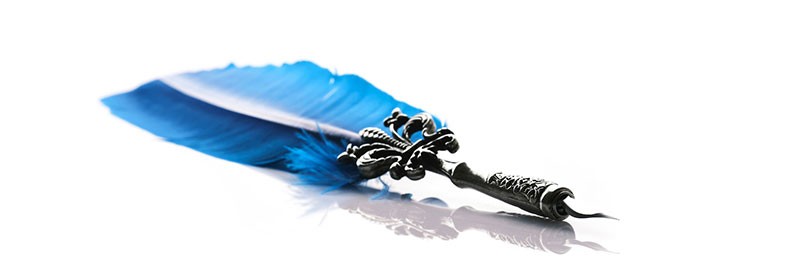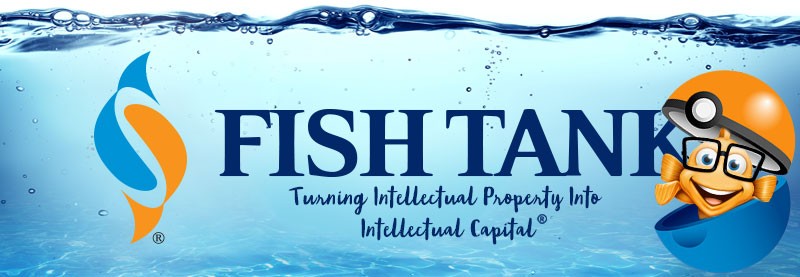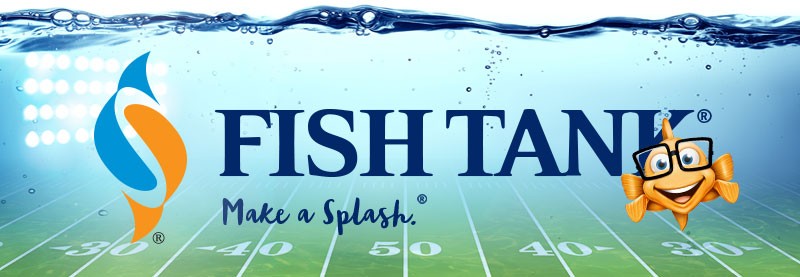Intellectual Property Insights from Fishman Stewart
Mini Article – Volume 23, Issue 14
Share on Social

From Quill to Copyright: The First US Copyright Registration
By Kristyn Webb
Have you ever wondered what was the very first work to receive a copyright registration in the United States? Perhaps you have wondered. Perhaps you know the answer. If not, here is a hint: it is a type of book that might be studied by children like Dev Shah, the fourteen year old from Florida who correctly spelled “psammophile” to win first place at the Scripps National Spelling Bee earlier this year.
Before we get to the answer, let’s set the scene with the backstory for context. The year was 1790—only seven years after the signing of the Treaty of Paris which formally recognized the independence of the US from Great Britain and one year after George Washington, the first US president, took office. Congress had just passed the nation’s first federal copyright statute: the Copyright Act of 1790. Washington picked up his quill and signed the bill into law on May 31, 1790.
That statute was very narrow and only granted copyright protection to books, maps, and charts for an initial term of 14 years, and a renewal period of another 14 years. Nonetheless, just days after the law was enacted, John Barry, a distinguished bookseller and printer based in Philadelphia, Pennsylvania, saw the significance of protecting intellectual property in a rapidly developing nation. On June 9, 1790, Barry registered the “Philadelphia Spelling Book” which aimed to provide education and literacy to young learners, serving as a valuable resource for spelling, vocabulary, and pronunciation. Because the US Copyright Office was not yet in existence (and would not exist until 80 years later), Barry registered the copyright in his book with the U.S. District Court of Pennsylvania.
The book, while relatively modest in scope, played a pivotal role in demonstrating the necessity of copyright laws to safeguard the creative endeavors of authors and publishers. The successful registration of Barry’s work under the Copyright Act of 1790 set a precedent and paved the way for countless authors, artists, and mapmakers to follow suit, safeguarding their creations and encouraging a vibrant cultural landscape.
Perhaps Barry’s book also achieved its aim of instilling goals of good spelling in the nation’s youth. The Scripps National Spelling Bee, an annual competition for children fourteen and under who compete to be the top speller, is a televised event that is watched by 7.5 million people. Again, congratulations to Dev Shah on his win!
Kristyn Webb is the Group Leader of Fishman Stewart’s Copyright Practice Group, and is currently earning a Master’s Degree in Copyright Law at King’s College London.

Published July 28, 2023


Related Content from Fishman Stewart
In a recent decision, the U.S. Court of Appeal for the Eighth Circuit affirmed a jury verdict holding that the use of the "Success Kid" meme by a congressman's reelection campaign for fundraising purposes did not qualify as fair use.
In February 2024, proposed legislation was introduced in US House of Representatives which would extend copyright protection to golf courses. The bill is titled “Bolstering Intellectual Rights against Digital Infringement Enhancement Act” or the “BIRDIE Act”.
June is Pride Month, which honors the 1969 Stonewall Uprising in Manhattan and recognizes the impact that lesbian, gay, bisexual, and transgender (LGBTQ+) individuals have had on history locally, nationally, and internationally. The United States Patent and Trademark Office flies the Pride Flag and promotes the Pride community’s contributions with programming offered annually.
June is Pride Month. This year we are celebrating with some IP tips for drag performers! Drag performers can protect their intellectual property by registering the copyrights in their original works of music, choreography, and comedy sketches.
You’re rarely more than a few yards from Finny’s favorite chips, semiconductor chips to be precise. But what exactly is a semiconductor chip?
"May the 4th Be With You," also known as Star Wars Day, takes place annually on May 4th. The phrase is a pun on the iconic Star Wars catchphrase "May the Force be with you."
First, a big “thank you” to all our readers who have given feedback on our newsletter. We appreciate your interest and insights. It is always a treat to hear from you! Second, we wanted to provide you with updates on some of our most popular articles
“Palworld”— a computer game created and published by Japanese developer Pocket Pair. Released as an early access game in January 2024, it sold over seven million copies on the computer platform Steam in the first five days and had nearly 20 million players in the first two weeks.
This year’s Super Bowl featured a thrilling overtime victory for the Kansas City Chiefs over the San Francisco 49ers. With estimates as high as 123 million viewers, America's premier sporting event also serves as a grand stage for creativity and intellectual property protections that enhance the game’s success.
Valentine’s Day is just around the corner and jewelry sales are usually around $6 billion USD in the United States alone. In 2021, the US Customs and Border Protection agency seized over $1 billion USD worth of counterfeit pieces of jewelry.
IDENTIFYING, SECURING AND ADVANCING CREATIVITY®











